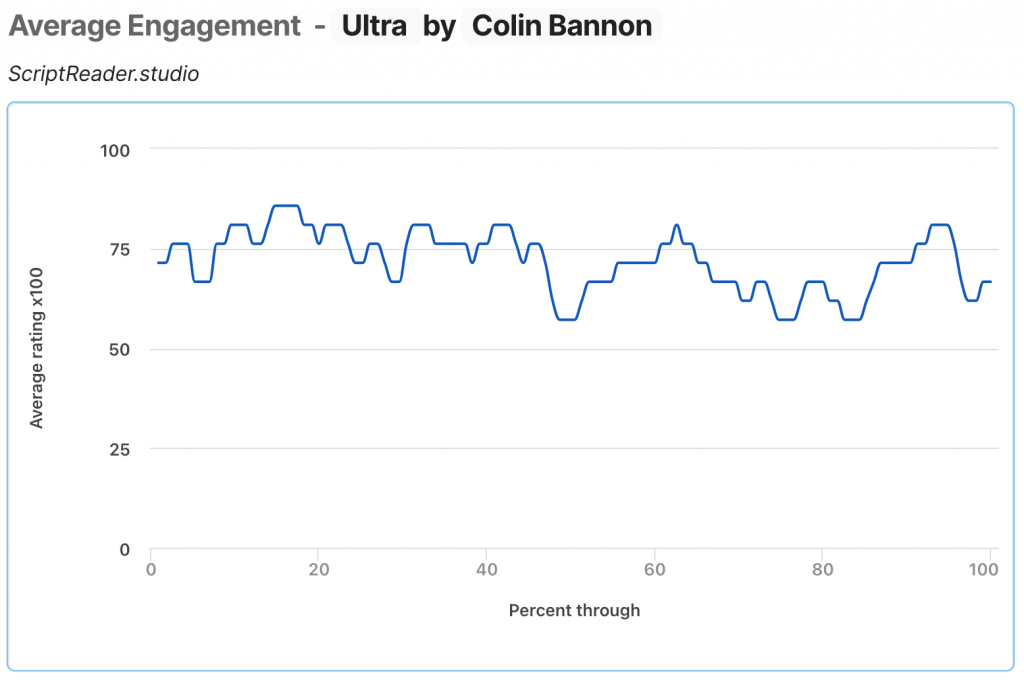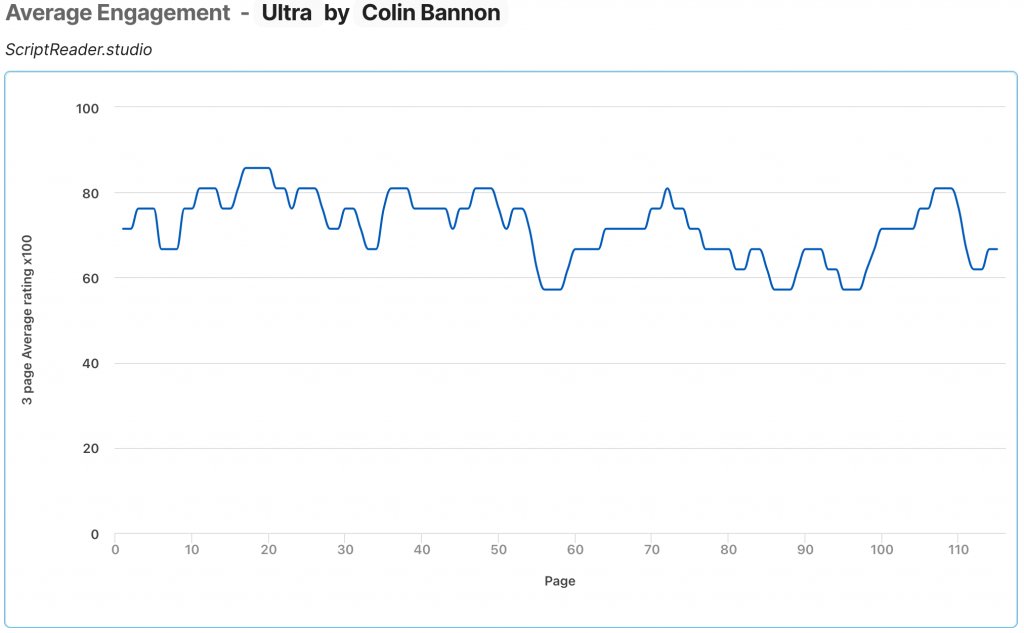ScriptReader.studio is different to other screenplay review sites?
What can you do on ScriptReader.studio?
- find scripts to read
- leave a rating for scripts
- submit scripts to have them read and rated
- request private feedback
- read our blogs
What can you do on ScriptReader.studio that you can’t do anywhere else?
- automatically submit feedback – this means you can take as little or as long as you like with your written feedback
- get feedback and confirmation others have read your script – automatic feedback means you can be certain that readers have read your screenplay
- see how your script pattern compares with others – coming soon, but it will enable you to see how engagement and other factors compare with known popular scripts
Our approach to reviewing
The core of our metrics are engagement – how much of a page turner is the script, how much do you enjoy a screenplay. This is because people stick around for films they enjoy, plain and simple.
Multiple script rating sites offer a summary of the script and then detailed feedback. Others offer page-by-page cover notes. This isn’t our approach at present, although we are always taking on feedback and adjusting.
Instead we only ask for voluntary notes every 10 pages on feature screenplays. This is because we want the reader to give the script time to to breathe and having to comment on each page can become a needless chore and risks distracting from the story.
Likewise we also believe that reviews are best to help a script with its story, characters and arcs. These are not apparent on an individual page basis but over multiple pages.
As such our reviews focus on critiquing the story rather than whether a page or line needs a refresh. We do this because we believe this is how most viewers enjoy films – as a whole, and not on whether a tiny niggle or line didn’t seem right.
Our automatic ratings also help to identify how acts progress and engage – does it have a killer Act 1 but soggy middle, does it let down in Act 3? Or is it consistently great?
This is why we rate how we rate.
Our ratings explained
The engagement chart shows how engaged readers were over the screenplay. This is done as a percentage as the script by default but can also be done on a page-by-page basis.
Ratings charts


How does this work? Well part of this is our secret sauce of tracking engagement and averaging out across readers and pages to give a sense of the flow. We do this because we believe that it’s not an individual page that can make or break a script but the overall trend.
As such we will be adding and adapting to our chart methods over time but for now this is how we will present our data. We are working for top statisticians and analysts to do so.
Ratings tables
We also summarise how readers felt about different sections of the screenplay.
| Overall rating | First 10 pages rating | Where the story started | Average dollar value |
|---|---|---|---|
| What the reader gave as the rating once they read the script | Average rating for the first 10 pages of the script | Readers are asked where they felt the story kicked off | If they were to buy this script how much do they think it was worth |
| Originality rating | Storyline rating | Style rating | Enjoyment rating | Diversity rating |
|---|---|---|---|---|
| How original they felt the story was | How consistent they felt the story was | How they rated the writer’s or writers’ style | How much they enjoyed reading the script | How diverse they found the cast – not just race but disabilities, social background and so on and whether it is varied or monocultural |
| Score | Rating |
|---|---|
| 91-100% | Extremely high |
| 81-90% | Very high |
| 71-80% | high |
| 61-70% | Above average |
| 51-60% | average |
| 41-50% | average |
| 31-40% | Below average |
| 21-30% | low |
| 11-20% | Very low |
| 1-10% | Extremely low |